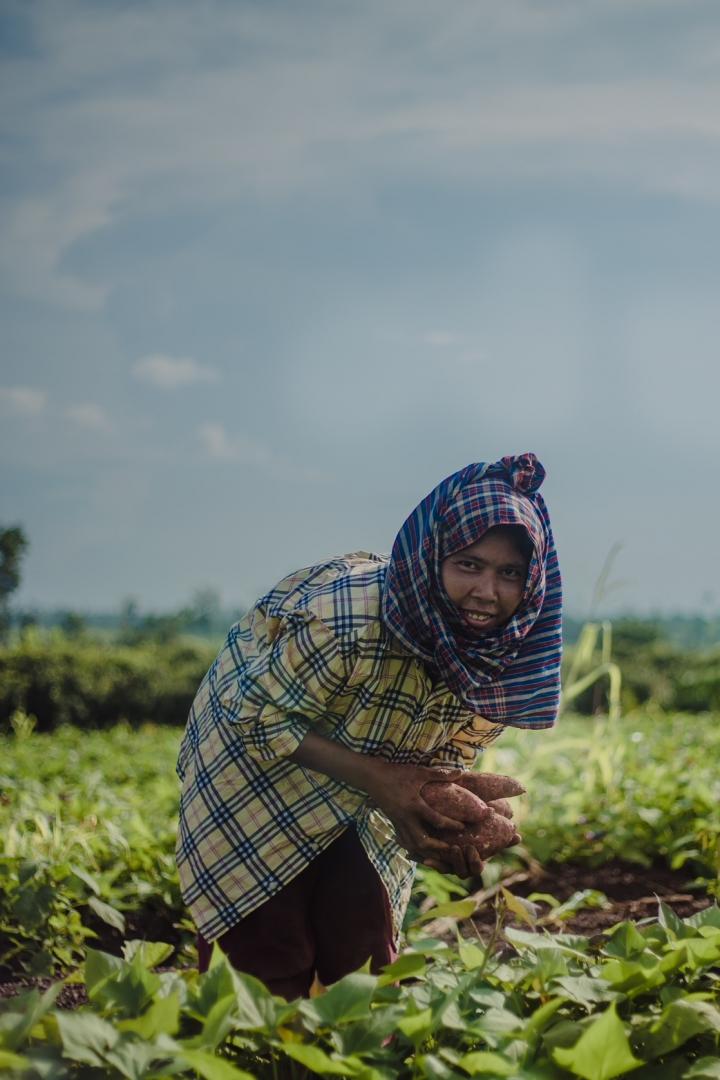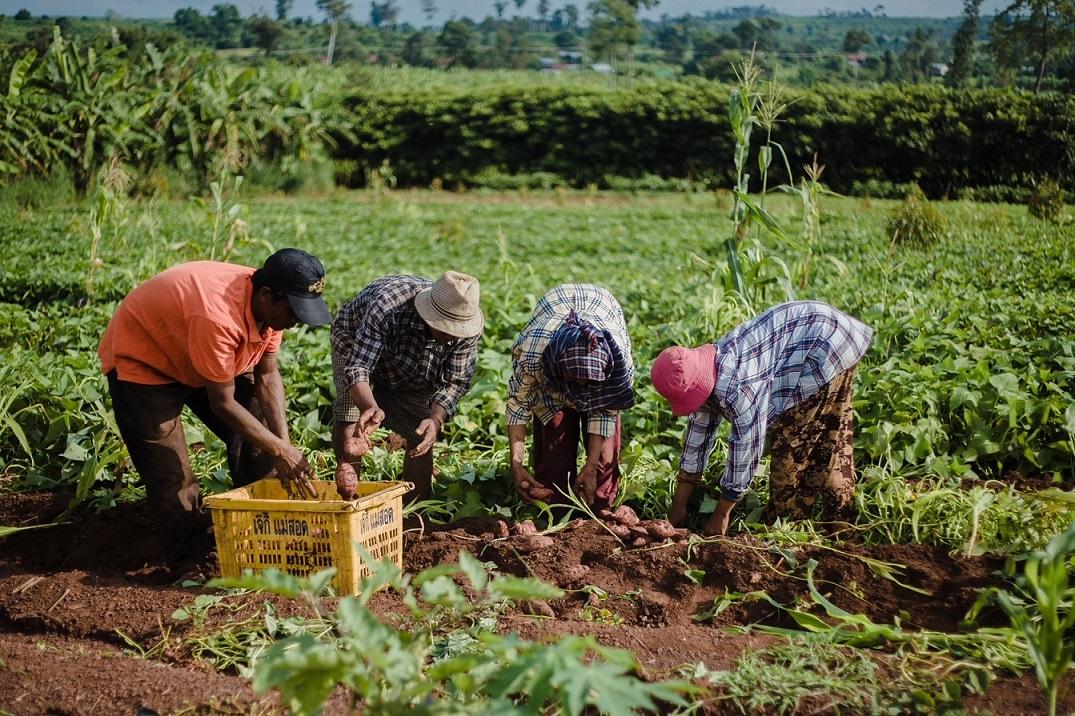Lyly Food: Increasing visibility through IB accreditation in Cambodia
Ly Ly Food Industry Co., Ltd. was created in May 2002 by Ms. Oknha Keo Mom to produce Khmer quality food products, including locally processed dried fruits and vegetables as well as rice and snack crackers. She saw to it that her company would engage employees who were disadvantaged and hailed from humble beginnings, envisioning that she could contribute to the improvement of their quality of life. From a start-up operation of 20 employees, the company’s staff has swelled to 250.
Your business, Lyly Food, is one of the 18 companies in Cambodia that received Inclusive Business accreditation. What doors does IB accreditation open for Lyly Food?
Since we implemented this Inclusive Business project, we have been getting positive feedback. Recently, we registered into a national entrepreneurship competition and we won the competition. In the competition, we talked about the IB plan that we have developed, so I think that’s one of the factors that helped us win the competition as well.
The main benefit is visibility. We are now much more well known in the government sector. We are being recognized as a company, so we can build a stronger reputation, and people acknowledge that we care about the society and we care about our people and our planet.
This IB plan has to be highly impactful to the people around us, especially the farmers that we have helped. The farmers didn’t have a market before. When they planted potatoes, pumpkins, and bananas and they sold them to the middle man, the middle man gave them a very low price and got all the benefits by exporting our foods and vegetables to our neighbouring countries, such as Thailand and Vietnam. We could see this happening and we couldn’t just stand aside and watch our farmers suffer. So we came up with this idea to buy fruits and vegetables from the farmers and then we process them and sell them to the mass market in Cambodia. So, ever since we implemented this project, we have helped 1500 families, or approximately 6,000 people in Cambodia. We have helped them raise the living standard a bit higher so they don’t have to emigrate to neighbouring countries.

What do think are the most important ways government can support inclusive businesses like yours in Cambodia?
There’s a saying: “People don’t lack courage, only motivation.” So, as long as the government motivates us and assists us when we face problems, we can persist. For small and medium enterprises like us, they can help negotiate with the bank for a lower rate for example. The Ministry of Science, Technology and Innovation especially supports us. They provide a lot of information and data that is very useful. For instance, the government will provide contacts to local mayors, so that they help us find farmers for specific fruits. They also provide us with technical help. I know that there are a lot of funds from overseas and support from NGOs and other groups to help raise the standard of living. The government can help us access this funding too.
Lyly Food is a women-led business. How do you include women in your business?
My mother, who is involved in the business, is also the president of the Cambodia Women Entrepreneurs’ Association. In Cambodia, women are often told to stay at home and cook for the children instead of going out. So, as a women-led company, we highly encourage women to be financially independent, instead of staying at home. Women here are very hardworking, detailed, and can multitask. All they need to be is strong and independent, and they need to strengthen their skills and knowledge. Being involved in associations and giving speeches to motivate other women is very important. The most important things are motivation and the people you surround yourself with.
Viability is important for inclusive businesses. What plans do you have in place over the next years to increase your viability and profit margin?
Our plan is to focus on product development, so we will develop better tasting products and a wider variety of strategies and different price points. We are heavily involved in the advertising and the promotional strategies as well.

What kind of trends in Inclusive Business do you see in Cambodia in the coming years?
I feel like in the future, there will be a lot more inclusive businesses led by women. I can say that because women come up with a lot of initiatives. When we went into the competition, mostly women initiated the business plans, especially related to what we can produce locally. Women in Cambodia like to produce their family’s old formula of special products, for instance, traditional body scrubs or honey that we have locally. Women come up with those initiatives to turn them into high quality local products. In the future I can see that IB will be led more by women’s initiatives.
Do any of these women entrepreneurs come to you as an example of a successful IB and ask for advice?
Mostly they don’t even know they are part of an IB plan. They just had the the idea to create the products, and their intention was to use our local ingredients. So, their main ideas were the same as ours, to utilize what we have and process it so that consumers can buy them. For example, bags made out of our local bamboo plants; they know how to creatively make them into viable products. They are doing it, but they do not know that they are inclusive businesses, because they don’t know about IB. I think we should let more people know more about what IB is.
Do you think that IB coaching or more networking and advisory about IB would help?
Of course, it is kind of like a force to push us forward. Because we are in the IB project and the people there are very supportive, they are very helpful. So they have phases planned out, they have a specific schedule to follow so we don’t lose track. As a small start-up company, we tend to lose our focus sometimes, so the IB business plan helps us organize the schedule, and it helps us to learn more about how work is supposed to get done. So, these are very important tools and techniques to help us small and medium enterprises to move forward more quickly.
